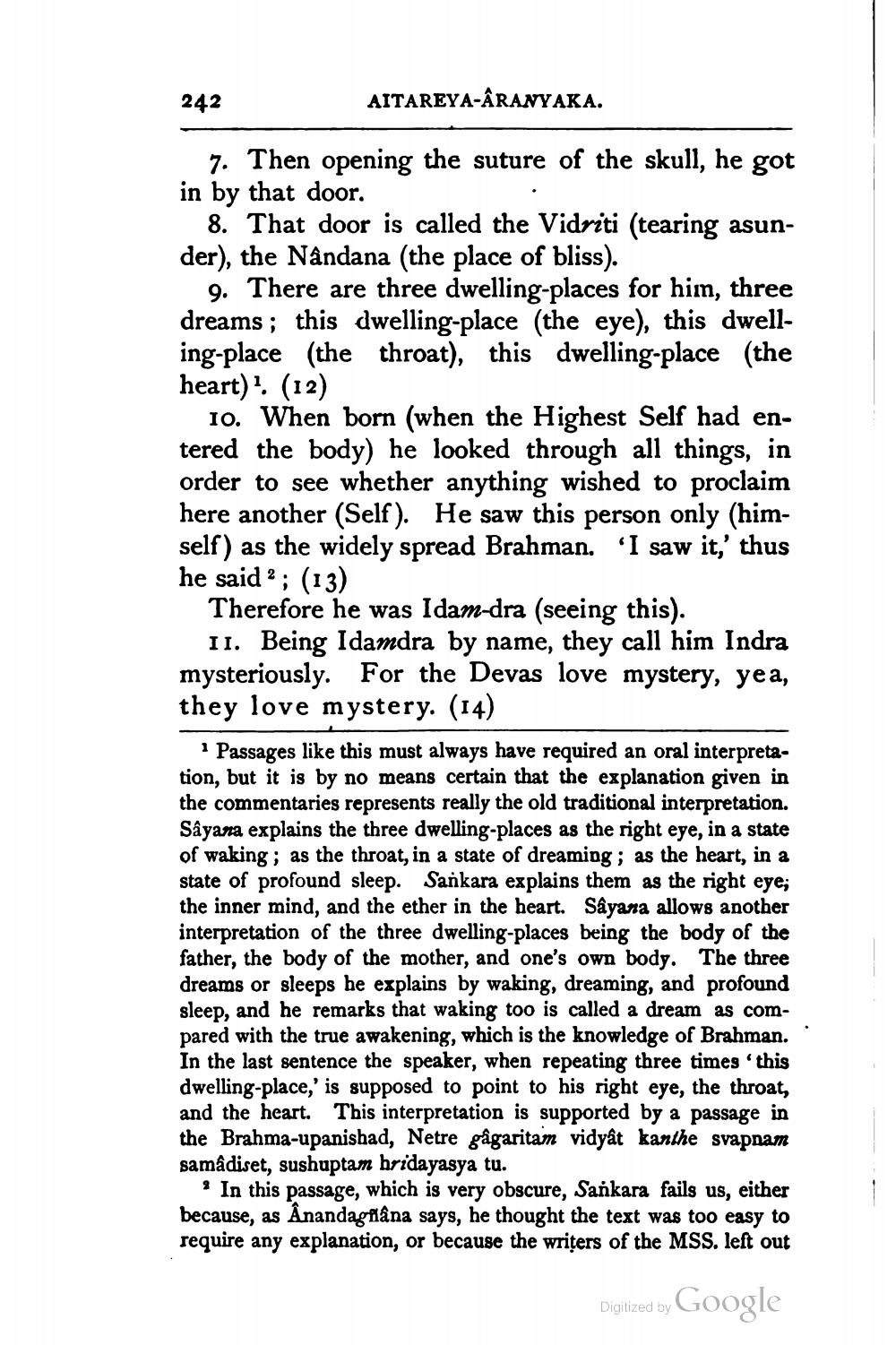________________
242
AITAREYA-ÂRANYAKA.
7. Then opening the suture of the skull, he got in by that door.
8. That door is called the Vidriti (tearing asunder), the Nândana (the place of bliss).
9. There are three dwelling-places for him, three dreams; this dwelling-place (the eye), this dwelling-place (the throat), this dwelling-place (the heart)". (12)
10. When born (when the Highest Self had entered the body) he looked through all things, in order to see whether anything wished to proclaim here another (Self). He saw this person only (himself) as the widely spread Brahman. 'I saw it,' thus he said ? ; (13)
Therefore he was Idam-dra (seeing this).
II. Being Idamdra by name, they call him Indra mysteriously. For the Devas love mystery, yea, they love mystery. (14)
* Passages like this must always have required an oral interpretation, but it is by no means certain that the explanation given in the commentaries represents really the old traditional interpretation. Sayana explains the three dwelling-places as the right eye, in a state of waking; as the throat, in a state of dreaming ; as the heart, in a state of profound sleep. Sankara explains them as the right eye; the inner mind, and the ether in the heart. Sayana allows another interpretation of the three dwelling-places being the body of the father, the body of the mother, and one's own body. The three dreams or sleeps he explains by waking, dreaming, and profound sleep, and he remarks that waking too is called a dream as compared with the true awakening, which is the knowledge of Brahman. In the last sentence the speaker, when repeating three times this dwelling-place,' is supposed to point to his right eye, the throat, and the heart. This interpretation is supported by a passage in the Brahma-upanishad, Netre gågaritam vidyât kanthe svapnam samâdiset, sushuptam hridayasya tu.
In this passage, which is very obscure, Sankara fails us, either because, as Anandagilâna says, he thought the text was too easy to require any explanation, or because the writers of the MSS. left out
Digitized by Google




